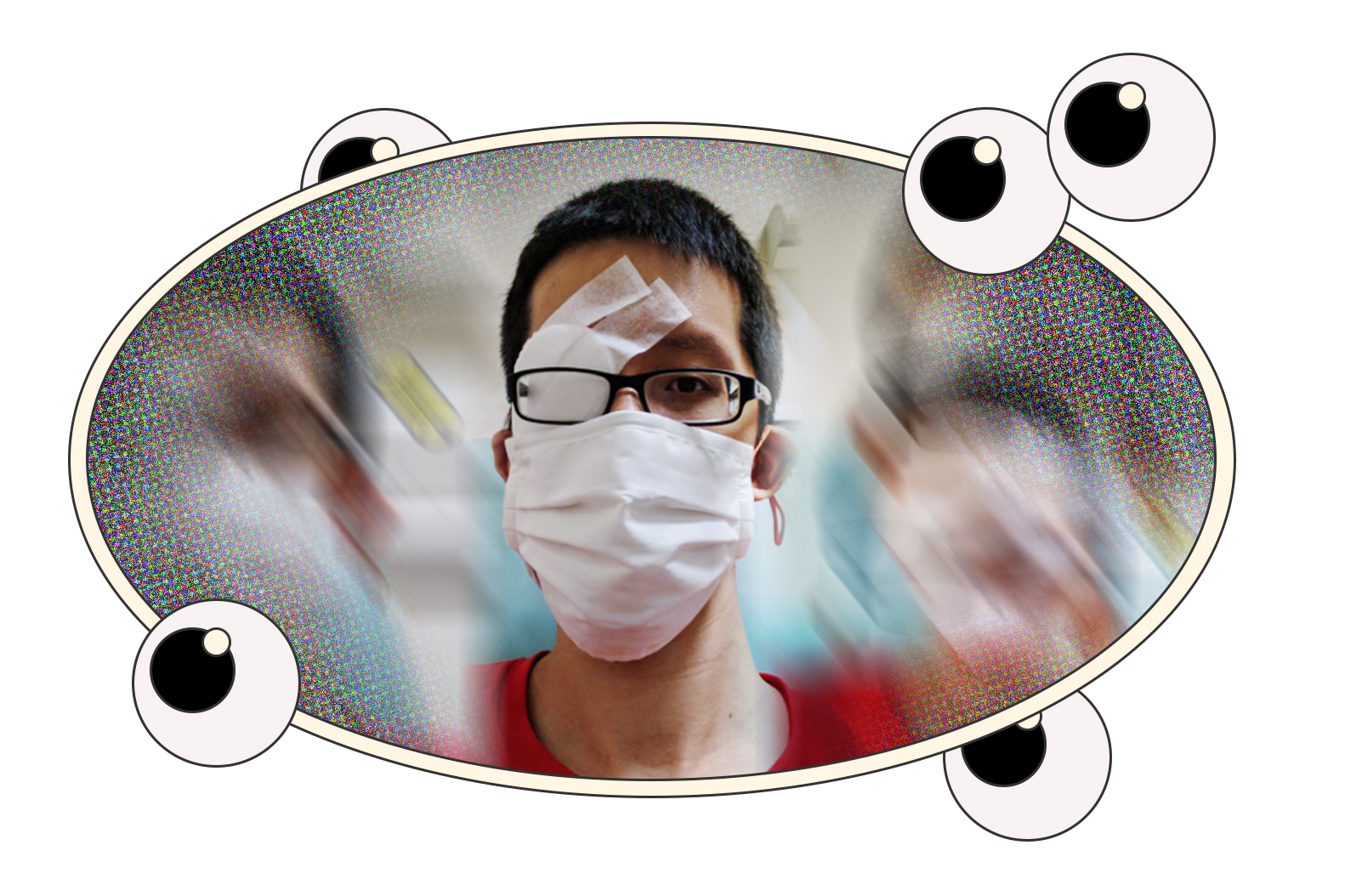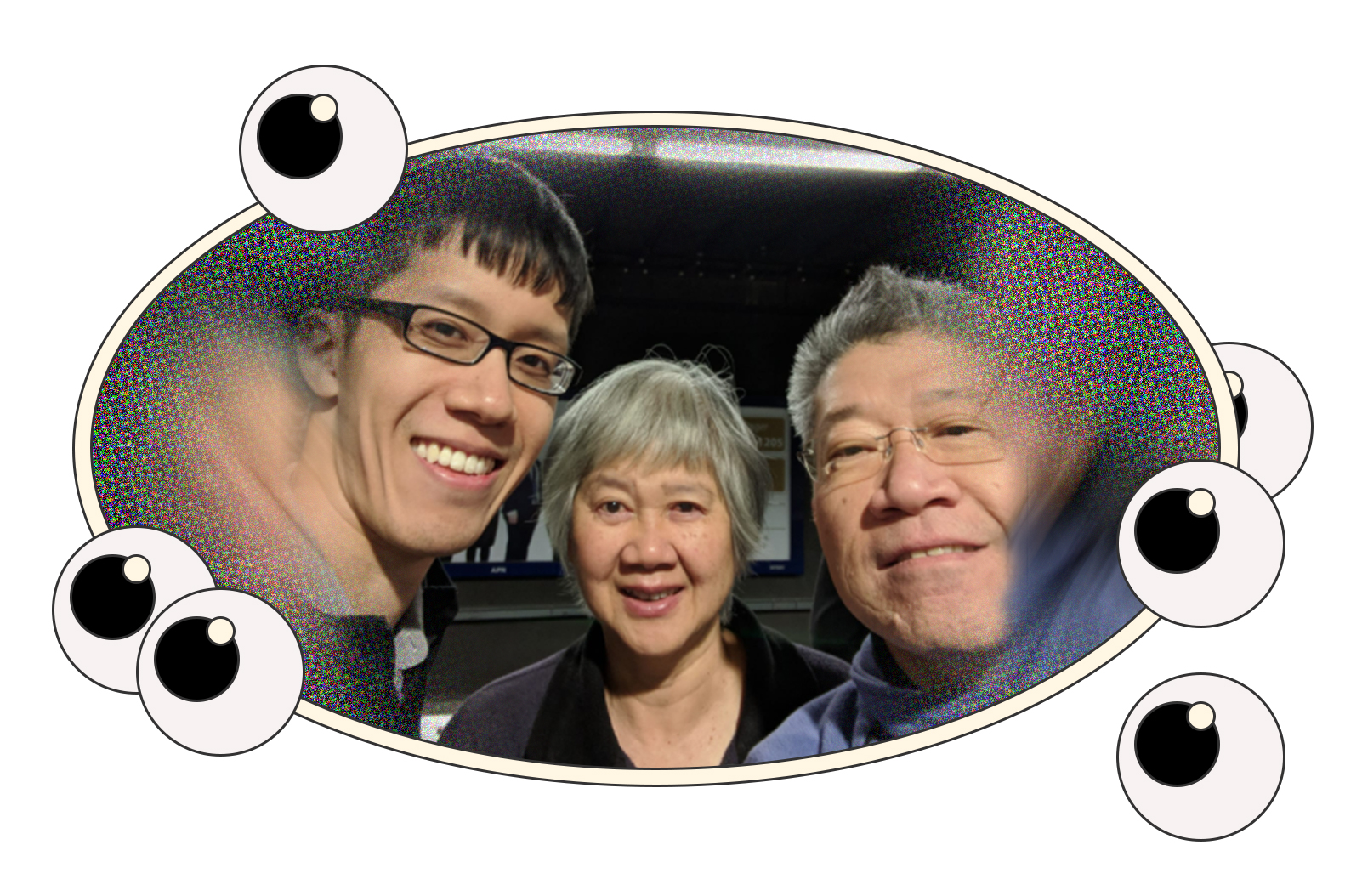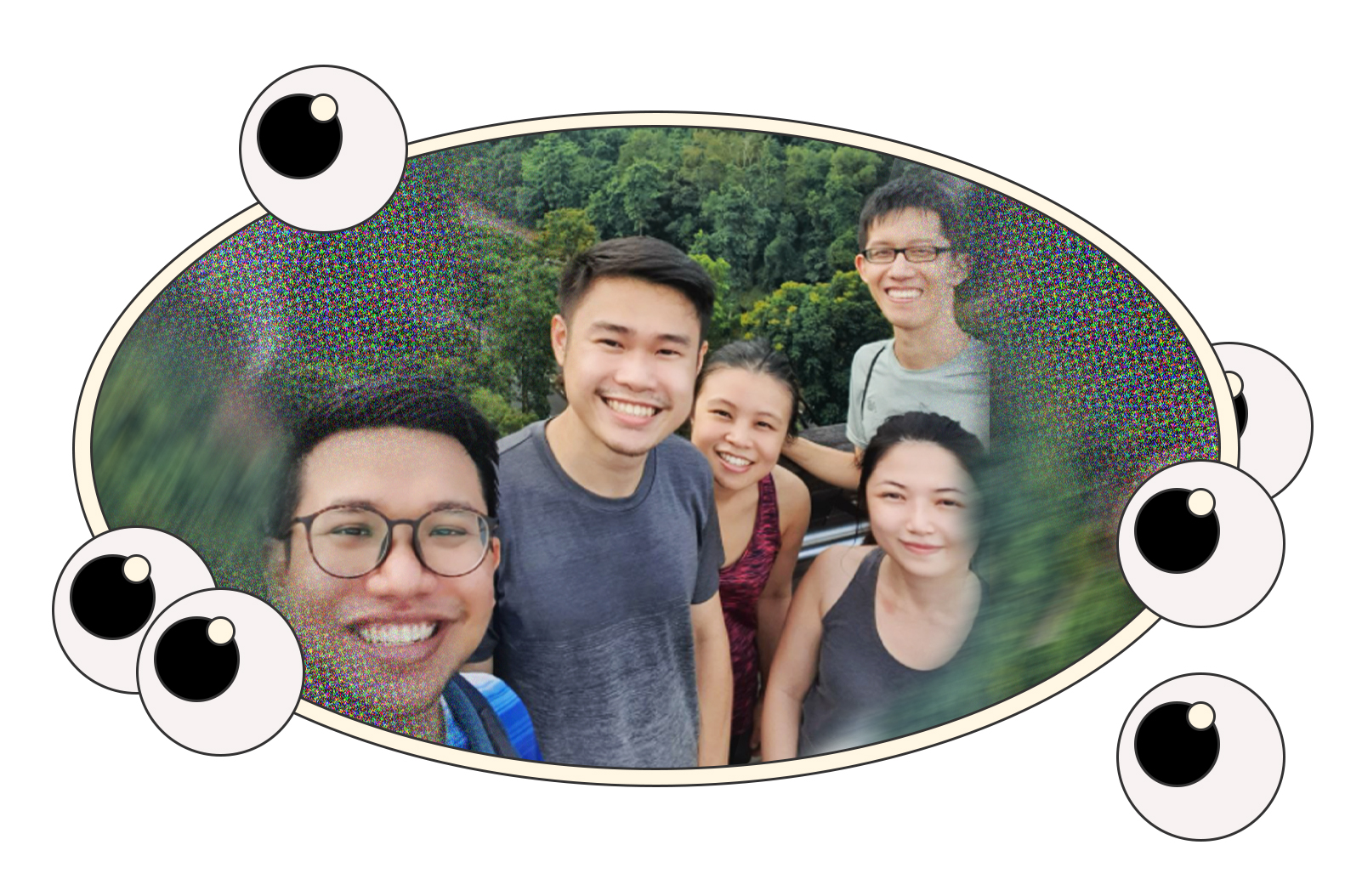At the end of July last year, I underwent an operation to halt vision loss in my right eye.
In crude terms, the operation involves the surgeon cutting a small slit in my eye to reduce its pressure.
Under normal circumstances, complications are rare, but my circumstances have never been particularly normal.
After the surgery, my eye began to cave in due to extreme pressure loss, like a slowly deflating balloon.
I spent two weeks lying in bed as we went through various drugs to try and restore my eye’s pressure.
My most strenuous physical activity was walking 20 times up and down the corridor outside my bedroom.

I survived on sermons from around the world, voice messages from a few close friends and the Critical Role podcast where voice actors play a long-running campaign of Dungeons and Dragons.
Eventually when none of those drugs worked and I was on the verge of permanent vision decay, I underwent a second procedure to “reinflate the balloon” — involving multiple stitches and jelly injected into my eye.
However, the pressure went up a little too much, which resulted in eight hours of pain that culminated in a late-night visit to the A&E where they pulled the jelly out of my eye with a needle, many times over.
What I mean by pain? Imagine a drill, drilling into your eye socket and tunnelling down the cavity of your neck!
IN EVERYTHING, GIVE THANKS
The word of the Lord exhorts us: in everything, give thanks. During those weeks of uncertainty, I learnt to be thankful.
God put many people by my side, from my uncle and aunt who housed and fed and bore me to hospital; to my parents and spiritual parents who, separated from me by physical distance, prayed unceasingly through those weeks; to my closest friends who would constantly check up on and banter with me through those hours upon days of waiting.
I am grateful for His blessings.

“In everything” means, in everything. In those eight hours of the worst pain I have ever experienced, I found myself only able to cling to Jesus’ name. I sang hymns, declared verses and screamed His name in nerve-racking agony.
Everything left me apart from Jesus’ name – all my anxieties about work, my hopes for a nice girl to settle down with, my ambitions for a life of significance. Only by His grace did I not lose hold of Him.
After I walked out of the hospital that second time, I felt different. Reborn.
Those things which had cluttered and absorbed my mind beforehand, filling up my everyday mental monologue before I underwent the first surgery – they were gone.
Instead, in my head and heart was unexpectedly perfect peace.
A year on and although some of those worries and fears do return to trouble me, that peace has never disappeared.
For that peace, I am grateful for trials.

Those eight hours felt like a shadow of a foretaste of hell itself — but what about those weeks of waiting?
As I think back, it was in those weeks of pause, of enforced hiatus from the busyness of daily life, that I learnt the most.
They were for me what Eugene Peterson called the “Badlands” in his memoir, The Pastor:
“Looking back now, I see myself in those prebadlands years as a Labrador puppy, full-grown but uncoordinated, romping and playful but not yet “under authority,” oblivious to its master’s command: “Sit.” The only verbal signal that the puppy was capable of responding to was “Fetch,” which sent him galloping across a field, catching a Frisbee in full flight, and returning it with wagging tail, ready for more. In the badlands I learned to sit.”
In my badlands, I also learnt to sit: to be still, to listen, to wait. I physically felt the urgency and frenzy of my everyday responsibilities being drained out of me, my addiction to activity being cut off at its source.
The withdrawal symptoms were as rough as they were visceral: fever-dreams, bouts of sudden and violent anxiety, even what might’ve been either a spiritual attack or a hallucination.
But by the end, I had grown to appreciate the slower pace, one where I no longer pressured myself to perform and react and do. I had surrendered to the undeniable truth: that nothing I could do would help me recover, and that my life was entirely in His hands.
For that discovery of rested surrender, I am grateful for waiting.
IN ALL THINGS
“In all these things, we are more than conquerors through Him who loved us,” said Paul, no stranger himself to suffering, in his letter to the Romans.
I read some reflections by Oswald Chambers this week about how the Word says “in all things”, not “despite all things”. It is hard enough to be thankful despite suffering — it is impossible without God to be thankful in it.
I still struggle on many days to give thanks. I still get angry and frustrated and morose. I still get consumed by my habit for performance anxiety. I’m not there just yet.
But let endurance have its perfect work, and may God be glorified in all that I have endured.
For He has taught me to be thankful, in and for all things.
- Recall the most pain you’ve ever experienced.
- What were you able to hold onto in that moment?
- What does the Bible say about pain?
- What does the Bible say about God’s comfort?
- Memorise three scriptures that bring you comfort in pain. Share them with someone you know who’s facing pain today.









